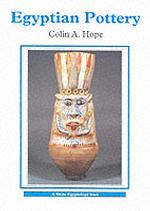- ホーム
- > 洋書
- > 英文書
- > Psychology
基本説明
This book is the first to examine language universals from a cross-disciplinary perspective. It provides new insights into long standing questions such as: What exactly defines the human capacity for language? Are there universal properties of human languages and, if so, what are they? Can all language universals be explained in the same way, or do some universals require different kinds of explanations from others? It is unique in starting with the assumption that the best way to approach these and related questions is through a dialogue between a wide range of disciplines, including linguistics, cognitive neuroscience, philosophy, computer science and biology.
Full Description
Languages differ from one another in bewildering and seemingly arbitrary ways. For example, in English, the verb precedes the direct object ('understand the proof'), but in Japanese, the direct object comes first. In some languages, such as Mohawk, it is not even possible to establish a basic word order. Nonetheless, languages do share certain regularities in how they are structured and used. The exact nature and extent of these "language universals" has been the focus of much research and is one of the central explanatory goals in the language sciences.
During the past 50 years, there has been tremendous progress, a few major conceptual revolutions, and even the emergence of entirely new fields. The wealth of findings and theories offered by the various language-science disciplines has made it more important than ever to work toward an integrated understanding of the nature of human language universals. This book is the first to examine language universals from a cross-disciplinary perspective. It provides new insights into long standing questions such as: What exactly defines the human capacity for language? Are there universal properties of human languages and, if so, what are they? Can all language universals be explained in the same way, or do some universals require different kinds of explanations from others? Language Universals is unique in starting with the assumption that the best way to approach these and related questions is through a dialogue between a wide range of disciplines, including linguistics, cognitive neuroscience, philosophy, computer science and biology.
Contents
Preface ; Notes on the Contributors ; 1. Language Universals: A Collaborative Project for the Language Sciences, Morten H. Christiansen, Christopher T. Collins, and Shimon Edelman ; 2. Language Universals and Usage-Based Theory, Joan L. Bybee ; 3. Universals and the Diachronic Life Cycle of Languages, James R. Hurford ; 4. Language Universals and the Performance-Grammar Correspondence Hypothesis, John A. Hawkins ; 5. Approaching Universals from Below: I-Universals in Light of a Minimalist Program for Linguistic Theory, Norbert Hornstein and Cedric Boeckx ; 6. Minimalist Behaviorism: The Role of the Individual in Explaining Language Universals, Thomas G. Bever ; 7. The Components of Language: What's Specific to Language, and What's Specific to Humans?, Steven Pinker and Ray Jackendoff ; 8. On Semantic Universals and Typology, Emmon Bach and Wynn Chao ; 9. Foundations of Universal Grammar in Planned Action, Mark Steedman ; 10. Computational Models of Language Universals: Expressiveness, Learnability and Consequences, Edward P. Stabler ; 11. Language Universals in the Brain: How Linguistic Are They?, Ralph-Axel Muller ; 12. Language, Innateness and Universals, Andy Clark and Jennifer B. Misyak ; 13. Evolution, Development and Emerging Universals, Barbara L. Finlay ; 14. On the Necessity of an Interdisciplinary Approach to Language Universals, Florencia Reali and Morten H. Christiansen ; Index







